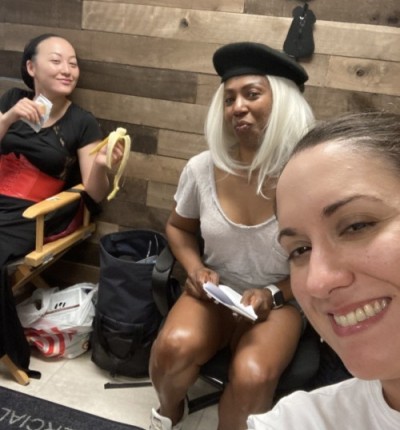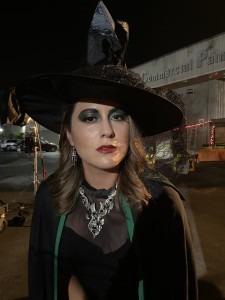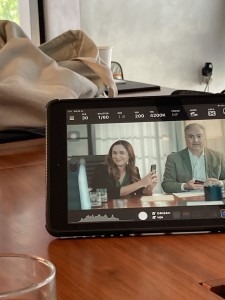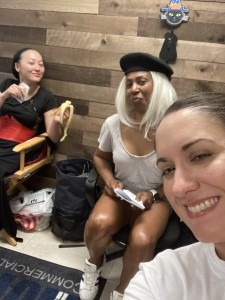
In my last blog post (Part 1), I detailed the basic and recommended guidelines for Actor Etiquette in live performance. I think these details can be applied to any performance setting- opera, theater, etc. Performance etiquette is integral to creating a great report with your fellow actors and the company that employs you; as I mentioned before, the goal is to get rehired. Furthermore, talent will never outweigh preparedness and hard-work. Period. I think etiquette can be extended to the commercial acting realm as well. Similarly, acting in film and commercials requires a certain kind of decorum, with the added elements of a much larger budget, union inclusion, and time constraints. These factors produce another layer of diligence needed in the performance process. There is definitely some overlap between the etiquette boundaries of both medias, but there are definitely some differences.

First, similar to theater/opera, once you receive your script or material, you need to begin memorizing it ASAP! Furthermore, you need to memorize what’s on the page you are sent. Too many times, actors I’ve worked with fail to adhere to the given script, only to be heavily scrutinized by the director or client (commercial), and even in some cases, are fired for lack of caring to learn what the client requested. Especially for commercials, where you are representing a business or marketing a product, you need to memorize word-for-word the text that the director, client or UPM sends. It’s their business on the line and you are paid appropriately. Once the lines are learned, then you can be flexible with your delivery only if suggested by the director.
Once lines are learned and you’ve had a table read (virtual or in-person), then you’ll be sent a call sheet for your shoot day(s). ALWAYS read the call-sheet with a fine tooth comb. You could have a fitting/rehearsal/make-up call listed somewhere and you don’t want to miss that. Not going to a fitting can actually get you fired, in both commercial and live performance bookings. Then, once you locate your call (usually includes hair and make-up, depending on type of project) plan to arrive at least 15-30 minutes early if you can. I don’t specify this as a requirement, but more as a safety net, since locations for commercials and film can be tricky to locate in some cases, so you want to allot ample time.

So, you’ve made it to the location. Now what? Locate the person or coordinator in charge. They are most likely the person sending you emails and detailing information. On film sets, it could be the Unit Production Manager, for example. Make sure you check in with someone of authority on set, as they can guide you where to go, get your payment information and possibly get you checked in on a specific time card. Then, head to hair and make-up if available. I will say, there is A LOT of waiting around when it comes to commercial work. You must be cooperative and patient. Take this time to review your script, as there could be some changes. Once settled and there is time, feel free to introduce yourself to those working around you, if they aren’t busy- this includes other actors, wardrobe, etc. Learn everyone’s name if you can. That’s a considerate touch.

BE READY AND AVAILABLE. Time on sets can be malleable, since there are various factors that can affect filming-weather, time of day, SAG Lunch deadline, etc. You don’t want to have people looking around set for you. Not a good look! Furthermore, take this time, if you already haven’t, to ask questions that you may need clarification on. It doesn’t hurt to get information that will promote efficiency. Also, two VERY important etiquette specifications you need to remember when on a commercial or film set: 1.) Be EXTREMELY quiet, as mic’s can pick-up everything-this will really piss off your sound guy AND excess noise can ruin perfectly good shots. 2.) DO NOT under any circumstances, play with props or equipment, especially if it’s a union project. (This can also apply to theater as well.) There is a specific job/person for everything on a set and often these jobs are protected by unions. You do not want to overstep and break something or disrespect someone’s job. That’s a legit liability. VERY IMPORTANT.
Finally, once you are comfortable and primed to perform, RELAX. Take a deep breath and focus. Your preparation and professionalism will show and will pay off! I 100% guarantee that, from my own experience. After you wrap your scenes, be sure to graciously thank everyone that you encountered on set, if you can. Lastly, HAVE FUN!



